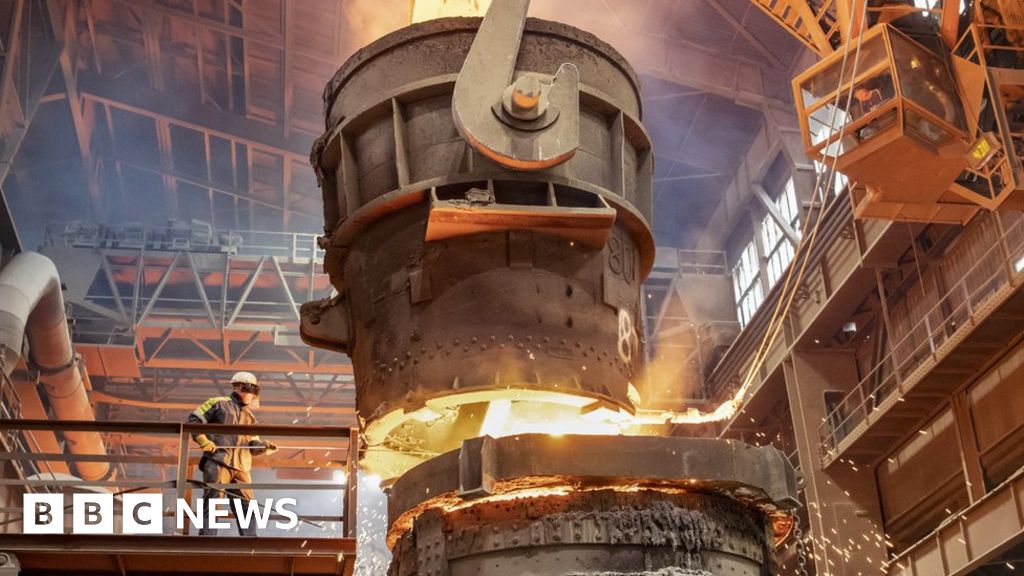Steel Industry Fears More Job Cuts Without Help

The steel industry has raised concerns that more jobs could be cut before any government support for electricity bills kicks in.
Gareth Stace, director general of industry body UK Steel, said British Steel's decision to axe 260 jobs could be the start of a trend in the sector.
The government has set out plans to reduce electricity costs for energy-intensive industries from next year.
Electricity costs have soared for firms which make steel, paper and chemicals.
The government has proposed changes it said would bring the energy costs of the UK's energy-intensive industries in line with those charged in other major economies.
Some 300 firms - which employ 400,000 workers - that make steel, paper, chemicals and other metals stand to benefit from the changes, which would see them exempt form certain costs and taxes.
Business and Trade Secretary Kemi Badenoch said the support would mean those industries "remain competitive on the world stage".
Making steel requires a lot of energy, and with prices soaring in recent months, the costs of making it have gone up.
Steel manufacturers in Britain, however, are paying about 60% more for electricity than their counterparts in other countries such as Germany, according to UK Steel, due to added levies and carbon costs.
Mr Stace welcomed the government's proposals and said they would go a "long way to bridging the gap" between what UK steelmakers pay compared to competitors in the EU.
But he said the time taken to implement them was "particularly concerning", with the plans set to be consulted on in the spring.
"We might see our electricity prices going down in just over a year's time - well, just over a year's time is a long time in steel," he told the BBC's Today programme.
He feared that without a "competitive business environment" for the UK steel sector, investment would dwindle and more announcements similar to British Steel's could follow.
On Wednesday, British Steel said it would shut its coking ovens in Scunthorpe and cut up to 260 jobs. The Chinese-owned firm cited "unprecedented" rises in energy costs as a reason.
Unions said the move was a concerning indicator about the future of the UK steel industry.
The new proposals come after the government extended an Energy Intensive Industries Compensation Scheme for a further three years. The scheme provides businesses with relief for certain costs on electricity bills.
From Chip War To Cloud War: The Next Frontier In Global Tech Competition
The global chip war, characterized by intense competition among nations and corporations for supremacy in semiconductor ... Read more
The High Stakes Of Tech Regulation: Security Risks And Market Dynamics
The influence of tech giants in the global economy continues to grow, raising crucial questions about how to balance sec... Read more
The Tyranny Of Instagram Interiors: Why It's Time To Break Free From Algorithm-Driven Aesthetics
Instagram has become a dominant force in shaping interior design trends, offering a seemingly endless stream of inspirat... Read more
The Data Crunch In AI: Strategies For Sustainability
Exploring solutions to the imminent exhaustion of internet data for AI training.As the artificial intelligence (AI) indu... Read more
Google Abandons Four-Year Effort To Remove Cookies From Chrome Browser
After four years of dedicated effort, Google has decided to abandon its plan to remove third-party cookies from its Chro... Read more
LinkedIn Embraces AI And Gamification To Drive User Engagement And Revenue
In an effort to tackle slowing revenue growth and enhance user engagement, LinkedIn is turning to artificial intelligenc... Read more

